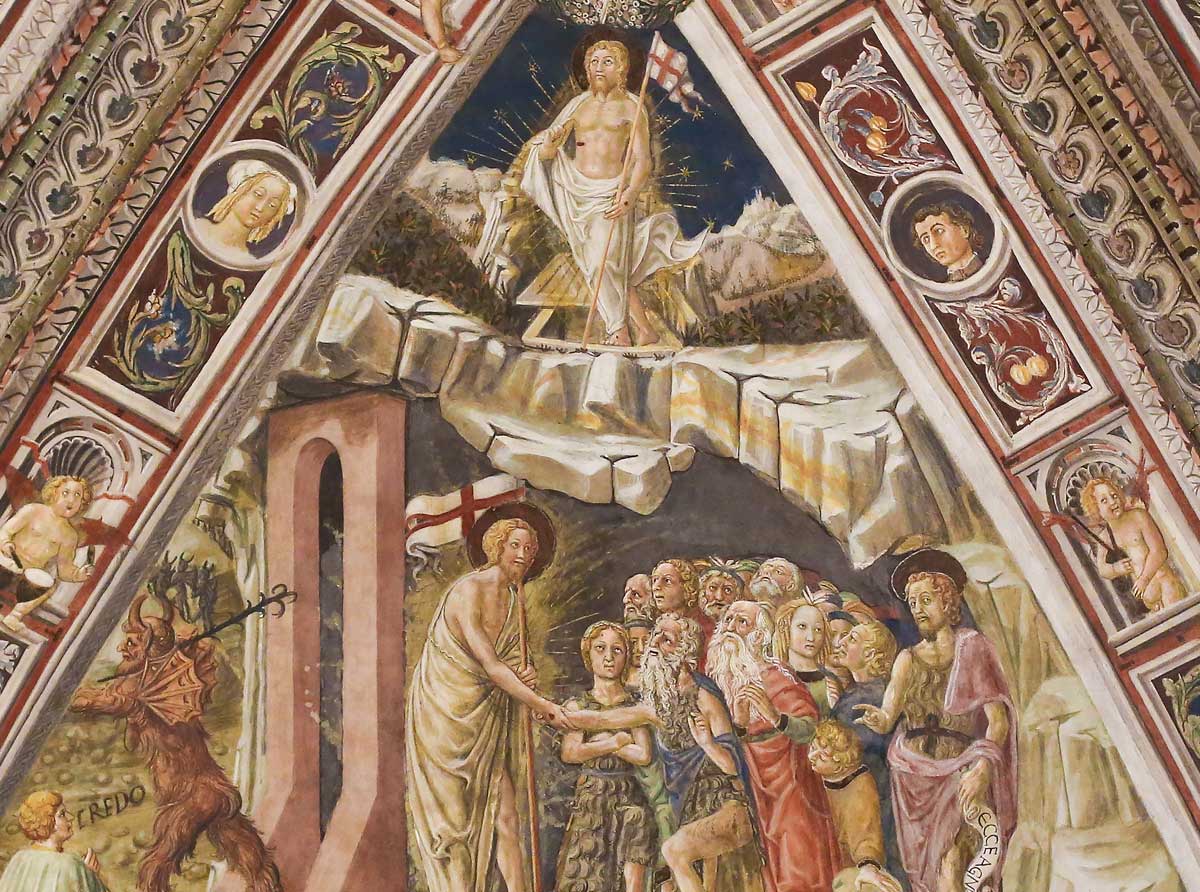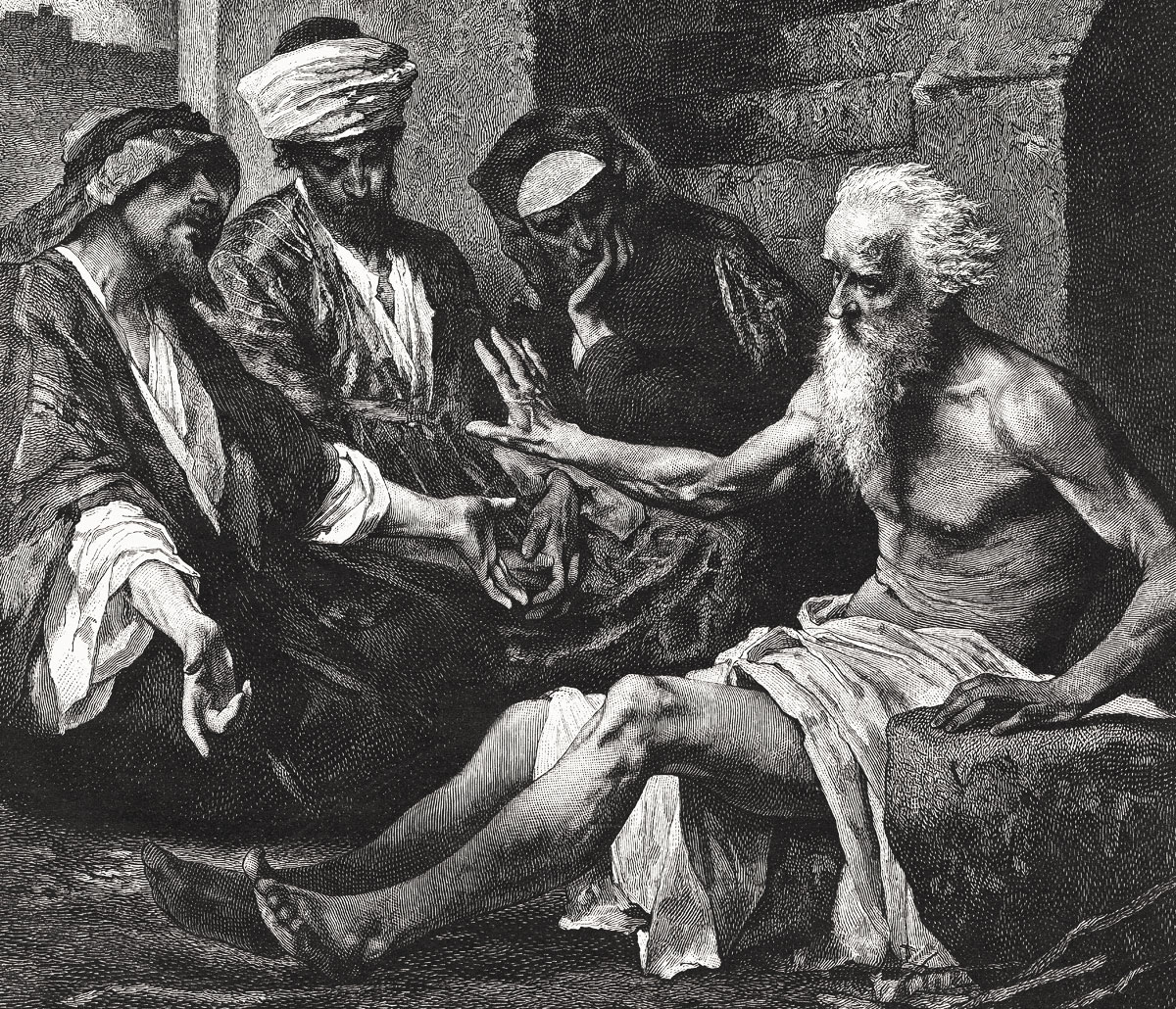Communiqué
It's Not Your Hijab
It's the Theology: In Praise of Wheaton College's Stand
It was an issue that would not easily go away, and only intensified last winter. Aside from murder and mayhem in our streets and, of course, global warming, what galvanized CNN, ABC, CBS, NBC, Time, NPR, USA Today, The New York Times, the Washington Post, the Chicago Tribune, The Atlantic, The Guardian, Salon, and even news sources like Business Insider? Presidential primary madness? Gay "rights" and same-sex everything? Christian "homophobia" and conservative "hate crimes"? Gun control? Medicalizing marijuana? Perhaps pro-life "fanaticism"? Alas, it was none of these. What aroused the ire of all these outlets—as we've all surely heard by now—was the "scandal" (so Time) that engulfed the Evangelical college in suburban Chicago and leading member of the Council for Christian Colleges and Universities (CCCU), Wheaton College.
The specific source of moral outrage among these gatekeepers is that the college's administration had the audacity to require an accounting of individual faculty members on the basis of a Statement of Faith that all faculty voluntarily affirm and sign both upon commencing their employment at the college and on an annual basis. (This practice, of course, is a standard feature of many CCCU member institutions.)
In brief, the Wheaton controversy concerns a formerly tenured professor of political science, Larycia Hawkins, who gained national attention by pledging to wear a hijab, the traditional Islamic head covering, during the 2015 Advent season as a sign of "solidarity" toward her "Muslim brothers and sisters." The controversy reached a climax on February 6 with the college's announcement of a "resolution" by which Hawkins would be leaving Wheaton's employ.

Hawkins's Statements
But there is more than meets the eye here, hence the need for a rehearsal of developments leading up to Hawkins's termination.
In statements posted December 10 on Facebook, Hawkins wrote:
I don't love my Muslim neighbor because s/he is American. . . . I stand in human solidarity with my Muslim neighbor because we are formed of the same primordial clay, descendents of the same cradle of humankind—a cave in Sterkfontein, South Africa that I had the privilege to descend into to plumb the depths of our common humanity in 2014. . . . I stand in religious solidarity with Muslims because they, like me, a Christian, are people of the book. And as Pope Francis stated last week, we worship the same God.
The allusion to the pope apparently was in reference to comments he made during his visit to the strife-torn Central African Republic, a country that since early 2013 has been caught in an endless spiral of violence and bloodshed between Muslims and Christians that has left thousands dead. While visiting a mosque in the CAR's capital of Bangui, the pope responded to a speech by Imam Tidiani Moussa Naibi by noting that "Christians and Muslims are brothers and sisters." Because of this, he insisted, "those who claim to believe in God must also be men and women of peace."
Pope Francis's statements aside (as well as the fraternal and not doctrinal context in which they were uttered), Wheaton took issue with Hawkins's bottom-line confession that "we worship the same God," which is at best debatable—needing severe qualification—and at worst theologically deficient. This theological controversy, of course, is by no means new. There is, after all, fourteen centuries' worth of history between Muslims and Christians, including an ongoing history of martyrdom, that calls for some accounting at both the theological and ethical levels. In any event, on December 15, based on disaccord between Wheaton's Statement of Faith and Hawkins's public theological pronouncements, the professor was placed on administrative leave.
Hawkins's Judgment
The timing of Hawkins's statements was important, of course, for they came on the heels of the November mass murder of 130 people in Paris by Muslim terrorists and the slaying three weeks later of fourteen people in San Bernardino, California, by an ISIS-inspired Muslim couple. Evidently, Hawkins's "solidarity" with Muslim believers was motivated by concern that these "brothers and sisters" might in the future experience animosity and hatred in response to these Islamist attacks. Hawkins might, of course, have expressed solidarity with the grieving family members of those 100-plus victims who had just been slain. Or she might have expressed solidarity with the literally hundreds of thousands of people who have actually experienced untold levels of oppression, persecution, and displacement around the world—suffering that is particularly acute in Islamic cultures. But this was not the case.
Yet the problem, according to Wheaton's administration, was not the wearing of the hijab; nothing in its Statement of Faith speaks to such a practice. Rather, the problem concerned the theological implications of Hawkins's public statements about "the relationship of Christianity to Islam." Her further public statements, issued in a press conference held on January 6 to discuss the "Notice of Recommendation to Initiate Termination Proceedings" that was communicated to her by the college, suggest that it was not so much naiveté as well-calculated activism which accounted for her actions from the beginning.
A lack of good judgment, at the very least, can be seen in her decision to consult the Council on American-Islamic Relations (CAIR) beforehand on whether wearing a hijab would be offensive to Muslims. Given its own brand of radicalism—"If the FBI Contacts You, Contact Us," reads the CAIR Michigan website—CAIR is hardly the place to go for sage advice. Rather, Hawkins might have consulted women like Asra Nomani, a former Wall Street Journal reporter and author of Standing Alone: An American Woman's Struggle for the Soul of Islam, or Hala Arafa, a retired journalist who worked for 25 years at the International Bureau of Broadcasting as a program review analyst. In a recent New York Times opinion piece ("Wearing the Hijab in Solidarity Perpetuates Oppression"), Nomani and Arafa argue that the headscarf is "a symbol of a dangerous purity culture" which has intensified since the 1979 Iranian Revolution. And elsewhere they have written: "Do not wear a headscarf in 'solidarity' with the ideology that most silences us. . . . Stand with us instead with moral courage against the ideology of Islamism."
What's more, Hawkins's holding press conferences rather than meeting in earnest and in private with the college's administration to discuss her situation is quite telling. In an official "Statement by Wheaton College Regarding Notice of Recommendation to Initiate Termination Proceedings" with Hawkins, released on January 5, college officials indicated that an impasse had been reached, based on her "unwillingness" to "participate in further dialogue about the theological implications of her public statements and her December 17 response."
Hawkins's Support
Apart from The Atlantic, whose reporter actually identified herself as a graduate of Wheaton College, much reporting of the Hawkins affair has been wildly misleading, if not blatantly false, and at times bordering on hysteria. A Huffington Post headline trumpeted: "A Christian College Placed a Professor on Leave for Wearing a Hijab," while a CNN writer in "Do Christian Colleges Practice What They Preach?" couldn't resist moralizing and doing a bit of amateur exegesis: "What about 1 John 4:18: 'There is no fear in love; instead, perfect love drives out fear'? . . . [and] what about the Amish people who forgave an attacker who killed their children in 2007?" "As it happens," the writer concluded, "there are people who do exhibit those virtues [of loving one's enemy]. But they get punished."
Not surprisingly, because Hawkins is African-American, plenty of folks injected the matter of race into the story. So, for example, USA Today intoned on January 21, "Black Students Speak Out on Wheaton's Larycia Hawkins' 'Problem.'" Therein the reader is informed that because at Wheaton "approximately 20% of students are people of color," some students and racial sympathizers have begun using the hashtag #BlackProfessorsMatter.
Alicia Artis, a black student who helped organize protests in support of Hawkins, offered her own unblemished opinion of what was afoot at Wheaton. "You can't do that to us," she complained. "It's frustrating racially. I think the administration doesn't understand that as much. They don't see what they did as being because of her race and gender." But as Artis saw it: "I don't think any decision is made in a vacuum where race and gender don't play a role." Apparently, theological integrity and fidelity to the Christian tradition take a back seat to race and gender—and of course, offending Muslims—even at Evangelical institutions these days. And, oh yes, Jesse Jackson—as reported by Time—compared Hawkins to Rosa Parks.
Not helping matters, too, were eminently "quotable" faculty members inside the camp. One Wheaton psychology professor, in the comment section under Hawkins's original Facebook post, wrote, "If you get any grief at work give me a heads-up because I'll be leading my spring psychology of religion class in Muslim prayers." And a member of the Bible and Theology Department told Time, "I have seen no theological argument from the college that would deem her commitments unacceptable"; rather, hers is "a clear, compelling affirmation of what we believe in Wheaton's Statement of Faith." Hmmm.
Overall, faculty support for Hawkins was not insignificant. For example, on February 5, the Wheaton Record reported that 78 current professors—roughly one-third of the faculty—wrote a letter to the college's president and provost, asking them to revoke Hawkins's administrative leave and withdraw the recommendation for her termination-for-cause.
Faulty Theological Support
To add some fuel to the fire, the generally skewed reporting of the Hawkins affair was supplemented by commentary from high-profile theological voices. One of these was Yale theologian Miroslav Volf, whom Hawkins had cited and who has written on Muslim-Christian relations—most notably in his recent Allah: A Christian Response. In light of the Hawkins episode, Volf simply could not resist taking a swipe at this theologically orthodox institution. In an op-ed piece for the Washington Post, titled "Wheaton Professor's Suspension Is about Anti-Muslim Bigotry, Not Theology," Volf not only discerned the College's true motivation for affirming theological orthodoxy—bigotry—but also lambasted it for its "exclusivity," which, Volf was at pains to argue, ends up fomenting hatred. Hawkins's suspension, he insisted, "is not about theology and orthodoxy. It is about enmity toward Muslims."
Readers of this journal will recall the firestorm of criticism that erupted in the Muslim world in reaction to Pope Benedict XVI's September 2006 address at the University of Regensburg, in which he asserted the need for reason and uncoerced faith to work together, of which Christianity and Islam, he noted, have different understandings. This address precipitated a violent reaction worldwide among Muslim clerics and leaders, resulting a year later in an open letter titled "A Common Word Between Us and You," which was signed by 138 Islamic leaders and hand-delivered to the pope and 26 other "Leaders of Christian Churches."
What many perhaps forget is the notably vacuous "Christian" response to "A Common Word," which was drafted by Volf's Yale Center for Faith and Culture (and published as a full-page ad in the New York Times) and which some 300 religious leaders—Catholic and Protestant—signed. To their credit, the then president and provost of Wheaton College, who initially had been two of the signatories to the Yale statement, later retracted their names after reading the document and finding it theologically wanting. (In "Regensburg Left Behind" [Touchstone, September/October 2009], I address the theological claims of both "A Common Word" and the Yale response.)
In a 2011 interview with Christianity Today, Volf attempted to press the analogy that "all Christians don't worship the same God, and all Muslims don't worship the same God." This observation, of course, is pointless, for at the creedal level all Christians do worship the same God. But Volf reasoned that "Muslims and Christians who embrace the normative tradition of their faith refer to the same object, to the same Being, when they pray, when they worship, when they talk about God. The referent is the same. The description of God is partly different."
"Partly different" indeed, as is the substance of God, which the persecuted Church—through tears—well understands. Christians worship Jesus as Lord and God; Muslims reject such a belief as an anathema, worthy of death.
With the College's official announcement on February 6 of Prof. Hawkins's departure (in the "Joint Statement by Wheaton College and Dr. Larycia Hawkins Announcing a Resolution"), her celebrity status is assured. After all, the Hawkins episode would appear to be a "perfect storm" of converging cultural issues that vex us exceedingly: anti-Muslim sentiment, race and gender discrimination, lack of "diversity," and, of course, Christian bigotry. Doubtless many will continue to view her as a martyr of sorts, with Wheaton College as the villain. And in all likelihood she will end up at some Ivy League school, where she'll be hailed as an icon for her "prophetic" stance in "speaking truth to power." As Hawkins herself notes, wishing to instruct us all, "in the black church tradition, we talk about speaking truth to power in a prophetic voice. Power doesn't always want to hear the things we have to say."
A Different Perspective
But there is another perspective, one that is skeptical of the "prophetic voice" we're accustomed to hearing from activists these days. It is one that James K. Hoffmeier, Professor of Old Testament and Ancient Near Eastern History at Trinity Evangelical Divinity School, has called to our attention in his thoughtful essay, "Middle East Christians Speak Out on Wheaton Professor's Actions." Did Hawkins and her supporters "consider how Middle Eastern Christians might feel about this particular gesture of solidarity with Muslims?" he asks. "Might it be offensive [to them]?"
Hoffmeier adduces considerable evidence from his Middle Eastern contacts that they indeed were offended by Hawkins's actions. Where was the concern by Hawkins and her supporters for Christians in Islamic cultures who have experienced far worsethan mere perceived marginalizationand potential discrimination in the West? We must be careful, Hoffmeier cautions, that our naïve or unwise actions—and our activism—do not hurt and discourage them, for they are paying a heavy price.
A Crucial Question
Ultimately, do American Christians have the theological and moral backbone to stand firm in the midst of cultural hostility? Alas, most of those criticizing Wheaton College had it wrong. Truth and charity are not opposites. Charity will always seek to honor what is good and true, without compromising and without fear of "offending" others. Just ask the true martyr.
Contemporary American Christians often seem more worried about offending the sensitivities of the surrounding culture than about offending the Almighty. But to affirm what the Church has always taught and to hold ourselves accountable to theological and moral truth—truth for which people lay down their lives—is neither "bigotry" nor "discrimination," nor is it a "scandal" in the way that many hyperventilating pundits self-righteously insist. It is, quite simply, to be faithful. As Rod Dreher observed, a big reason why "so many Catholic colleges and universities are Catholic in Name Only is because they don't do this."
Whether we will have the nerve and backbone in the days ahead to be faithful, or whether we will capitulate to the fear of offending others, time will tell. •
J. Daryl Charles is the Acton Institute Affiliated Scholar in Theology & Ethics. He is the author or editor of twenty books, including Retrieving the Natural Law (2008), Natural Law and Religious Freedom (2018), and, most recently, Just War and Christian Traditions (forthcoming). He is also co-editor of Abraham Kuyper, Common Grace: God's Gifts for a Fallen World, Volume 3 (2020). He is a contributing editor to Touchstone.
subscription options
Order
Print/Online Subscription

Get six issues (one year) of Touchstone PLUS full online access including pdf downloads for only $39.95. That's only $3.34 per month!
Order
Online Only
Subscription

Get a one-year full-access subscription to the Touchstone online archives for only $19.95. That's only $1.66 per month!
bulk subscriptions
Order Touchstone subscriptions in bulk and save $10 per sub! Each subscription includes 6 issues of Touchstone plus full online access to touchstonemag.com—including archives, videos, and pdf downloads of recent issues for only $29.95 each! Great for churches or study groups.
Transactions will be processed on a secure server.
more from the online archives

14.6—July/August 2001
The Transformed Relics of the Fall
on the Fulfillment of History in Christ by Patrick Henry Reardon
calling all readers
Please Donate
"There are magazines worth reading but few worth saving . . . Touchstone is just such a magazine."
—Alice von Hildebrand
"Here we do not concede one square millimeter of territory to falsehood, folly, contemporary sentimentality, or fashion. We speak the truth, and let God be our judge. . . . Touchstone is the one committedly Christian conservative journal."
—Anthony Esolen, Touchstone senior editor









